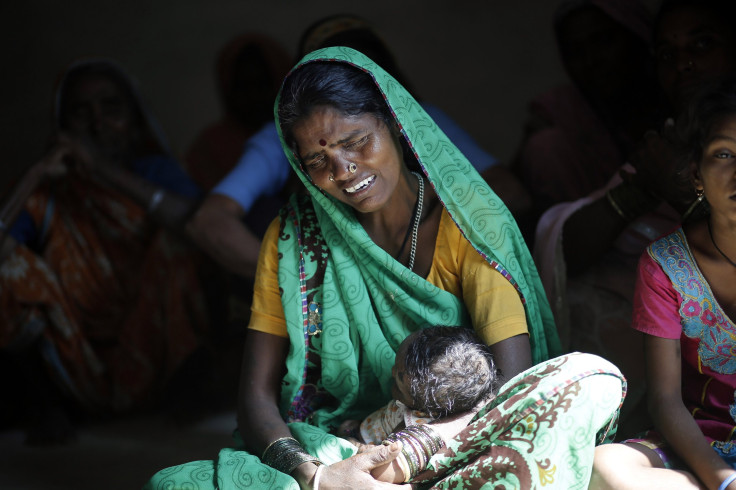India Sterilization Camp Medicine Linked To New Death, Drug Plant Investigated

One person is dead and at least six others are hospitalized after consuming medicine reportedly linked to the deaths of 13 women at a sterilization camp in the central Indian state of Chhattisgarh, two officials said Friday. The latest victims were not part of the medical procedures conducted at an annual "family planning" camp on Saturday.
Several victims who consumed the adulterated medicines arrived at hospitals from villages in Bilaspur district on Thursday and Friday, Reuters reported. More than 100 patients are reportedly admitted in hospitals following the incident, which has sparked outrage over the practice of mass sterilization in government-run rural camps across the nation. Local governments in India frequently set up sterilization camps as a means to provide affordable birth control to the country's rural population.
"They came with the medicine strips in their hand ... They complained of vomiting, dizziness and swelling in the feet," an official at a hospital reportedly said. "It looks like most of the sterilization patients might be affected due to this medicine."
The doctor who performed the sterilization procedures last week, which eventually led to the deaths of 13 women, has denied responsibility and instead blamed adulterated medication administered to the women after the surgery for the disaster. The doctor is currently facing charges of negligence resulting in deaths, Reuters reported.
State health officials said that police are investigating a local company, Mahawar Pharmaceuticals, which had provided the medicines to the sterilization camp, and have closed it down. The company’s director and his son were both arrested Thursday, local reports said. The owners reportedly said there was nothing wrong with the medicines that they supplied.
"We are a reputed company and have been in business since 1996. The drugs had an expiry date of December 2016," the director reportedly said. “The situation has been twisted in a wrong manner. We are just being harassed," he told Reuters.
During the investigation, officials reportedly found that a large amount of the drugs had been set on fire inside the factory. The local government had reportedly banned a batch of the medicines following the deaths, but it was still available to some people in rural areas.
One of five doctors who conducted autopsies on the deceased reportedly said that the reports were inconclusive and suggested that a chemical analysis should be performed.
"It is a mysterious case," the doctor said, according to Reuters. "It can be drug toxicity, infection. We believe some mistake has been (made) but it's purely accidental."
© Copyright IBTimes 2025. All rights reserved.





















